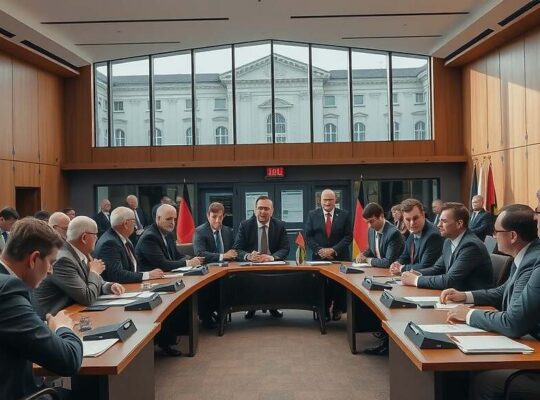A key figure within Germany’s governing coalition is raising concerns about the scale and potential cost-effectiveness of a planned expansion of natural gas power plants, while simultaneously emphasizing the need for a more ambitious approach to overall electricity demand. Carsten Schneider, the Federal Minister for the Environment, Climate Protection, Nuclear Safety and Consumer Protection, cautioned against an overly aggressive build-out of gas-fired infrastructure, arguing that investments in energy storage, energy efficiency and demand-side management may ultimately prove more economical.
Speaking to the Funke-Mediengruppe newspapers, Schneider highlighted the coalition agreement’s provision for up to 20 gigawatts of additional gas power capacity. However, he indicated that the initial phase of implementation would likely involve a significantly smaller figure, suggesting a more measured approach. “We must also pay attention to the costs” Schneider stated, advocating for a focus on designs that enable a future conversion to hydrogen power, thereby minimizing reliance on natural gas within the energy mix.
Schneider also challenged Economics Minister, Kati Reiche (CDU), to prioritize substantial electricity consumption, underscoring the needs of Germany’s industrial base and the burgeoning sectors of artificial intelligence and data centers. He stressed the importance of unwavering commitment to the expansion of renewable energy sources – wind, solar and biomass – while equally acknowledging the necessity of backup power options for periods of low wind or solar output. While acknowledging the potential role of gas-fired plants in this regard, Schneider presented himself as “technology open” leaving the door open for alternative solutions.
Furthermore, Schneider proposed a strategic linkage between upcoming energy transition legislation and a comprehensive climate protection program, a commitment mandated by federal law requiring its completion within the first year of the legislative period. He reiterated the crucial role of the energy transition as the driving force behind Germany’s climate protection efforts, signaling an intention to streamline the legislative process for key measures including the power plant strategy, the Renewable Energy Act and the Building Energy Act.
The debate highlights a tension within the governing parties on the optimal path to secure Germany’s energy future. The Federal Network Agency projects that Germany will require a net increase of 22.4 gigawatts of controllable capacity by 2035 to ensure network stability, a figure rising to 35.5 gigawatts should the expansion of renewable sources falter. This potential gap is driving pressure from the Economics Ministry for a more robust build-out of natural gas plants, a stance viewed with increasing scrutiny as policymakers grapple with the long-term economic and environmental implications. The discussion underscores a need to balance the immediate requirements of network stability with the long-term goals of decarbonization and cost containment.












